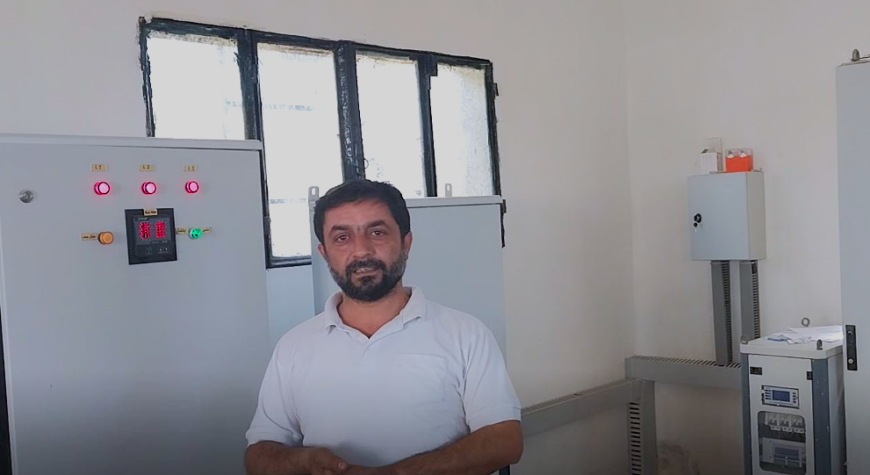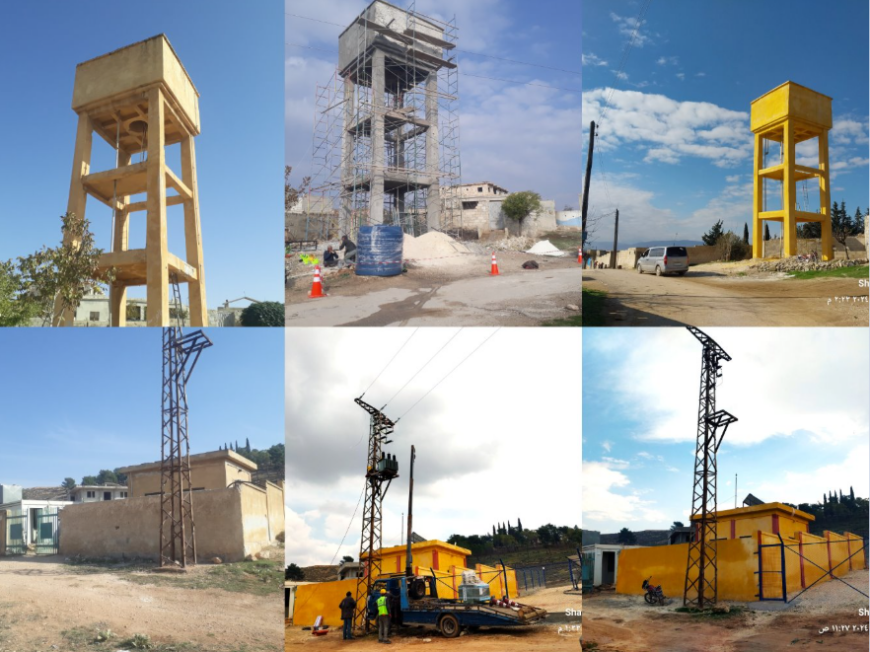The conflict and subsequent earthquake severely damaged key WASH infrastructure in Syria, preventing local populations from accessing safe and drinkable water and sanitation services.
Through ECHO’s support Acted rehabilitated key WASH assets such as wastewater systems and water pumps in and out of camps to enhance the provision of basic services to vulnerable populations. Among the rehabilitated assets are three water systems impacted by the earthquake in Aleppo.
Rehabilitation of three water systems impacted by the earthquake in Aleppo governorate
Khaled *, 35 years old, is an internally displaced person since 2013. He is now residing in a village within Aleppo governorate. Khaled was able to use his expertise in electrical and mechanical work to join the local council as a water station operator. Khaled manages the opening and closing of distribution valves, ensuring that each neighbourhood receives its fair share of this precious resource. Khaled also often volunteers to extend his hours, staying late to guarantee the station’s continued smooth operation.

Due to the damaged water stations and water supply systems, we struggled to secure the tankers to the extent that my children had to miss school to wait for the water tanks, unsure of its source or whether the water was safe to drink.
Currently, the project is in its final stage, with the station operating and pumping water for the communities. Preparations are ongoing to transfer full ownership to the Local Council.
Now, we're operating the station using solar power, providing all village residents with water free of charge. I am very happy as we no longer worry about fuel needed to run the station. My family and the village residents now have access to sufficient and less expensive water supply services. We can now save the money we used on buying water to meet other family needs.

The rehabilitation of the three water systems in Aleppo has had a transformative impact on communities still reeling from the compounded effects of conflict and natural disaster. Thanks to ECHO’s support and Acted’s intervention, access to safe, reliable, and sustainable water is once again a reality for thousands.
Stories like Khaled’s underscore the long-term value of investing in resilient infrastructure and empowering local actors. As the project nears completion and transitions to full local ownership, it stands as a testament to the strength of community-led recovery and the importance of restoring basic services to build back better.
*Names have been changed to protect the identity of the beneficiaries.